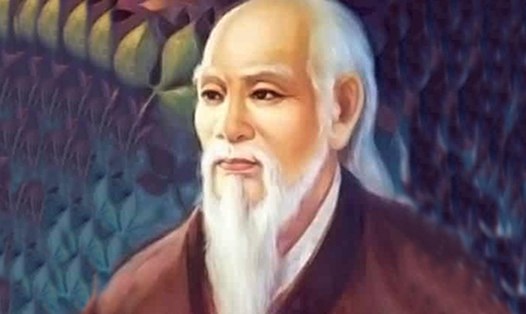Hải Thượng Lãn Ông – Lê Hữu Trác is a prominent medical figure and an outstanding cultural personality of our nation. He has bequeathed to future generations a vast and profound legacy in the fields of medicine and culture, which holds enduring and significant value in various aspects and continues to demonstrate practical relevance in society to this day)
Lê Hữu Trác, with the title Hải Thượng Lãn Ông (1724 – 1791), was originally from Văn Xá village, Liêu Xá commune, Đường Hào district, Thượng Hồng prefecture (now Liêu Xá commune, Yên Mỹ district, Hưng Yên province). He passed away in his mother’s hometown, Bầu Thượng region, Tĩnh Diệm commune, Hương Sơn district, Hà Tĩnh province (now Sơn Quang commune, Hương Sơn district, Hà Tĩnh province), at the age of 67.
Lê Hữu Trác was born into a scholarly family. His father, Lê Hữu Mưu, achieved the third-rank doctoral degree, serving as Thị lang in the Ministry of Public Works under the reign of Emperor Lê Dụ Tông. He held the position of Ngự sử and was granted the title Bá after his passing, posthumously receiving the title Thượng thư. His mother was Bùi Thị Thưởng.

During his childhood, Lê Hữu Trác accompanied his father to study in the capital Thăng Long (now Hanoi). Renowned for his intelligence and academic excellence, he had a broad understanding and excelled in poetry. In the year Kỷ Mùi (1739), his father passed away, leading Lê Hữu Trác to discontinue his formal education. However, he continued his self-directed studies at home, later taking the entrance examination for the Tam Trường but eventually deciding not to pursue further formal examinations.
Living within the ranks of the Trịnh army, Lê Hữu Trác witnessed firsthand the disintegration of the feudal government and the suffering of the people. Therefore, when he received news of his older brother’s death in Hương Sơn, Lê Hữu Trác used this as a pretext to request permission to return home and take care of his mother. He made the decision to leave the Trịnh army.
After returning home for a short period, Lê Hữu Trác fell seriously ill. Seeking treatment, he approached the physician Trần Độc in Rú Thành (Nghệ Tĩnh) and spent over a year recuperating there. Borrowing medical books for reading, he realized the practical benefits of the medical profession for himself and others. With a determined spirit, he decided to pursue the study of medicine. Upon recovering from his illness, despite an invitation from a Trịnh general to join the military, Lê Hữu Trác resolutely declined. He was steadfast in his determination to focus on the study and practice of medicine to help people.
In the autumn of the year Bính Tý (1756), Lê Hữu Trác went to the capital to further his studies but couldn’t find a skilled teacher. He purchased additional medical books and returned to Hương Sơn to conduct research while simultaneously providing medical care to the local residents. Within ten years, he became renowned throughout the Hoan Châu region (Nghệ Tĩnh).

Starting from 1760, Lê Hữu Trác established a teaching course in medicine, delving into the classical Chinese medical texts and combining them with traditional medicine. Over 26 years, he compiled the monumental medical work “Hải Thượng Y Tông Tâm Lĩnh,” consisting of 28 volumes and 66 books, making it a significant contribution to the field of medicine.
On the 12th day of the 1st month in the year Cảnh Hưng 43 (1782), Lord Trịnh summoned Lãn Ông to treat the Crown Prince Trịnh Cán. Despite his reluctance to seek fame and recognition, Lãn Ông had to bid farewell to his homeland and travel to the capital. While the Crown Prince’s condition improved with the medicine, Lãn Ông himself found it difficult to recover. Due to the recommendation of another physician, he used the pretext of a serious family illness as a reason to return h

